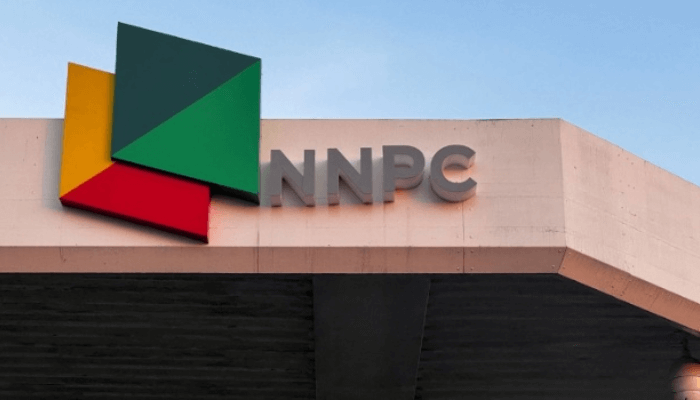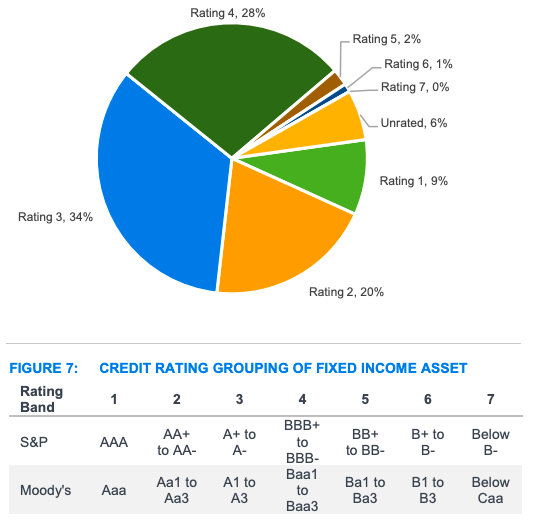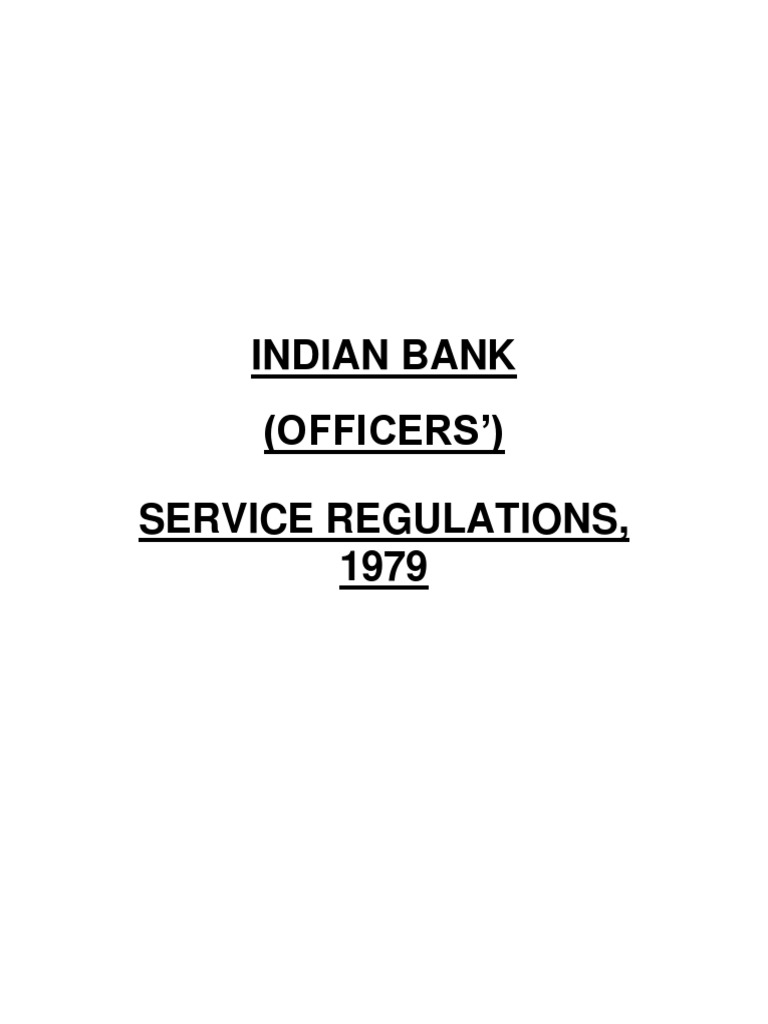Analysis Of Petrol Prices: Dangote Refinery And NNPC's Role

Table of Contents
Dangote Refinery's Potential Impact on Petrol Prices
The Dangote refinery represents a significant development in Nigeria's petroleum sector. Its potential impact on petrol prices is multifaceted.
Increased Refining Capacity
The Dangote refinery boasts a massive refining capacity, significantly increasing Nigeria's domestic production of refined petroleum products. With a daily output of 650,000 barrels, it promises to dramatically reduce reliance on imported fuel. This increased local production has the potential to substantially lower fuel prices by minimizing import costs and fostering competition. Currently, Nigeria relies heavily on imports, making it vulnerable to global price fluctuations. The Dangote refinery could shift this dynamic, offering a more stable and potentially cheaper domestic supply. The projected impact is a significant decrease in import bills, potentially saving billions of Naira annually.
- Current refining capacity: Before Dangote, Nigeria's refining capacity was severely limited, leading to substantial import dependence.
- Projected impact: Experts predict a significant reduction in petrol prices, potentially by as much as 30%, depending on various factors like crude oil prices and government policy.
Impact on Import Dependence
Nigeria's heavy reliance on imported petrol exposes it to external price shocks and currency fluctuations. The Dangote refinery promises to significantly lessen this dependence. By producing a substantial portion of the nation's fuel needs domestically, Nigeria can reduce its vulnerability to international market volatility. The savings on import costs alone could be considerable, potentially freeing up substantial government funds for other developmental projects.
- Current import costs: Billions of Naira are spent annually on petrol imports, placing a significant strain on the nation's foreign reserves.
- Potential savings: The refinery's output could lead to significant savings, potentially reducing the cost of fuel imports by a substantial percentage.
- Challenges: Efficient distribution networks and robust logistics are crucial for realizing the full price-reducing potential of the refinery.
Market Competition and Price Dynamics
The entry of a major private player like Dangote into the petroleum market is expected to significantly alter the dynamics of price competition. The current dominance of NNPC could be challenged, potentially leading to more competitive pricing for consumers. The possibility of price wars cannot be ruled out, further driving down petrol prices.
- Increased Competition: The Dangote refinery’s presence will introduce competition, potentially forcing NNPC to adjust its pricing strategies.
- Price Regulation: Government intervention and price regulation will remain a key factor influencing the final price paid by consumers. The government's approach to deregulation will significantly influence the market’s competitiveness.
- Expert Opinions: Many economists predict a downward trend in fuel prices following the refinery's full operation.
NNPC's Role in Petrol Price Regulation and Subsidy
The Nigerian National Petroleum Company (NNPC) currently plays a dominant role in the importation and distribution of petrol in Nigeria. Its actions and policies significantly influence petrol prices.
NNPC's Current Role in Fuel Import and Distribution
NNPC is currently the primary importer and distributor of petrol, managing the fuel subsidy system. This system, while intended to alleviate the burden on citizens, has faced criticism regarding transparency and efficiency, and its substantial cost to the government.
- Subsidy System: The fuel subsidy significantly impacts government spending and the overall fuel price.
- Transparency and Efficiency: Concerns remain about the transparency and efficiency of the current system.
NNPC's Response to Dangote Refinery
The arrival of the Dangote refinery will necessitate a strategic recalibration of NNPC's operations. The company may choose to collaborate with Dangote, focusing on other aspects of the petroleum sector, or it may opt for increased competition in the refined fuel market.
- Collaboration or Competition: NNPC’s response will largely dictate the extent to which the refinery’s impact on petrol prices is felt.
- Diversification: NNPC might shift its focus towards other aspects of the petroleum value chain, such as exploration and production.
Government Policy and Price Control
Government policy plays a pivotal role in determining petrol prices. The government may choose to deregulate the sector fully, allowing market forces to dictate prices, or it may continue with a modified subsidy scheme. The decision will have significant economic and political implications.
- Deregulation: A fully deregulated market may lead to more volatile prices but potentially greater efficiency.
- Continued Subsidy: Maintaining the subsidy will continue to place a burden on government finances.
Factors Affecting Petrol Prices Beyond Dangote Refinery and NNPC
Several other factors influence petrol prices in Nigeria, independent of the Dangote refinery and NNPC's actions.
Global Crude Oil Prices
Global crude oil prices are a primary driver of petrol prices worldwide, including Nigeria. Fluctuations in the international market directly impact the cost of importing or refining crude oil, affecting the final fuel price.
Exchange Rate Fluctuations
The Naira's exchange rate against the dollar significantly impacts petrol import costs. A weaker Naira increases import costs, translating into higher prices for consumers.
Other Economic Factors
Other factors like taxes, distribution costs, and refining margins also influence petrol prices.
Conclusion: The Future of Petrol Prices in Nigeria – Dangote Refinery's Role and Beyond
The Dangote refinery holds immense potential to reshape petrol prices in Nigeria. Its increased refining capacity promises to lessen import dependence and introduce competition, potentially leading to lower prices for consumers. However, the ultimate impact will depend on the interplay between the Dangote refinery, NNPC's strategic response, government policies, and global market dynamics. The role of NNPC in this transition remains crucial, influencing market stability and consumer affordability. Global crude oil prices and exchange rate fluctuations will continue to be significant external factors. It is vital to continue following developments in the Nigerian petroleum sector to understand the full impact of the Dangote refinery on petrol prices in Nigeria. Further research into fuel price dynamics is crucial for informed decision-making and policy formulation. Stay informed and engage in the conversation about the future of fuel in Nigeria.

Featured Posts
-
 Dali Bekam E Navistina Na Dobar Fudbaler Na Site Vreminja
May 09, 2025
Dali Bekam E Navistina Na Dobar Fudbaler Na Site Vreminja
May 09, 2025 -
 Trump Administration Day 109 May 8th 2025 Significant Developments And Impact
May 09, 2025
Trump Administration Day 109 May 8th 2025 Significant Developments And Impact
May 09, 2025 -
 Mulher Que Se Diz Madeleine Mc Cann Presa No Reino Unido O Que Sabemos
May 09, 2025
Mulher Que Se Diz Madeleine Mc Cann Presa No Reino Unido O Que Sabemos
May 09, 2025 -
 West Hams 25m Financial Gap How Will They Plug It
May 09, 2025
West Hams 25m Financial Gap How Will They Plug It
May 09, 2025 -
 Concern Grows Over Uk Citys Transformation Into A Ghetto
May 09, 2025
Concern Grows Over Uk Citys Transformation Into A Ghetto
May 09, 2025
Latest Posts
-
 Indian Insurers Plea For Streamlined Bond Forward Rules
May 10, 2025
Indian Insurers Plea For Streamlined Bond Forward Rules
May 10, 2025 -
 Regulatory Changes Urged Indian Insurers And Bond Forward Trading
May 10, 2025
Regulatory Changes Urged Indian Insurers And Bond Forward Trading
May 10, 2025 -
 New Rules Sought Indian Insurers Target Bond Forward Market
May 10, 2025
New Rules Sought Indian Insurers Target Bond Forward Market
May 10, 2025 -
 Indian Insurers Advocate For Simplified Bond Forward Regulations
May 10, 2025
Indian Insurers Advocate For Simplified Bond Forward Regulations
May 10, 2025 -
 Bof As Reassurance Are Stretched Stock Market Valuations A Cause For Concern
May 10, 2025
Bof As Reassurance Are Stretched Stock Market Valuations A Cause For Concern
May 10, 2025
